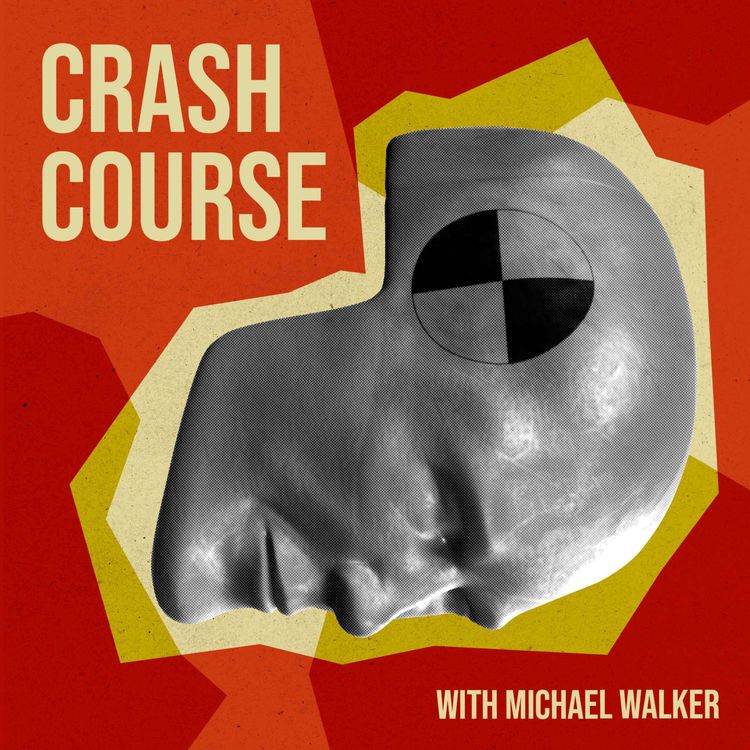Share

Crash Course With Michael Walker
Why Britain Backs Israel (w/ David Wearing)
•
From Balfour to Braverman, Britain has consistently backed Israel in its war on Palestine. To discuss why, I was joined by David Wearing Lecturer in International Relations at the University of Sussex.
This is a free version of a longer episode - to listen to the full show subscribe at patreon.com/crashcoursepod
More episodes
View all episodes

Will Labour Deliver for Renters? (w/ Generation Rent)
44:24|Most of my episodes on renting have been somewhat depressing. This conversation with Ben Twomey wasn't. That's because Labour have introduced a Renters Rights Bill which - though far from perfect - could do a lot to limit the insecurity currently experienced by private renters in Britain. Ben explained what's in the bill, what's missing, and what campaigners can do to encourage this Labour government to go further for renters.Guest: Ben Twomey, Generation Rent
Will the Riots Break Britain's Prisons (w/ Ian Acheson)
23:40|Britain's prisons were already dangerously full before the summer far-right riots. Will jailing hundreds of those rioters push the prison system over the edge? To answer that question I spoke to a fascinating guest. Ian Acheson is a former prison governor and author of the new book "Screwed: Britain's Prisons Crisis and How To Escape It"To listen to the full episode, sign up at patreon.com/crashcoursepod
Racism and Anti-Racism in Britain (w/ Asad Rehman)
01:08:47|How do the racist riots that have terrorised Britain these past two weeks fit in to a broader history of racism in Britain? In this fascinating episode I spoke to Asad Rehman, who grew up amid racist violence from the National Front in Burnley in the 1970s and 1980s, and who has spent his life since then campaigning against racism.
Labour's One Neat Trick To Get Britain Growing (w/ Jonn Elledge)
49:04|Keir Starmer and Rachel Reeves have promised that economic growth will be their number one priority. But - unwilling to spend any money - they're betting they can make this happening with costless reforms. Can planning reform deliver the goods and get Britain growing?Guest: Jonn Elledge
Britain's Prisons Crisis (w/ Cassia Rowland)
01:05:19|With a new government in power I'm moving from a focus on politics to one on policy, and the first topic I'm choosing for a deep is prisons. What's the extent of the crisis Labour have inherited, and how might they go about resolving it?Guest: Cassia Rowland, Institute for Government.
The French Election (w/ David Broder)
45:20|Elections in France on Sunday threw up a surprising result. Against all expectations the far-right were pushed into third place, and the left-wing New Popular Front finished with the largest number of seats. But what future faces France remains unclear. Guest: David Broder, Europe Editor at Jacobin. Editor: Liam Thorne
UK Election: The View From the Right (w/ Freddy Gray)
42:56|The collapse of the Tory vote and the rise of Reform means this election could prove to be historic in terms of Britain's right. To find out how Britain's conservative establishment are viewing this moment I spoke to Freddy Gray, Deputy Editor of The Spectator.
From Labour Left to New Labour (w/ Chris Mullin)
35:43|My episode last week with Jeremy Gilbert got a very positive response - so I thought I’d do another episode on Labour Party history.Chris Mullin was a key figure on the Labour left in the 1980s, but by 1994 he backed Tony Blair as Labour leader - and ended up taking a role as a junior minister in his governments.In this episode I ask Chris about that transition, and we also discuss Chris’s prolific career as a journalist and writer…Chris has written four novels, included “A Very British Coup. He’s also published four volumes of diaries, a memoir, and an expose of the miscarriage of judgement suffered by the Birmingham Six - who were falsely convicted of bombing by the IRA.
Labour's Last Landslide (w/ Jeremy Gilbert)
38:17|If you believe the polls, Starmer's Labour are heading for a landslide even bigger than Blair's in 1997. But that landslide, if it comes, will not be caused by any overwhelming positivity about either Starmer or Labour. Does that make the election of 2024 fundamentally different to the election of 1997? And, what consequences will that have for Starmer and Labour in government, and for Britain's left.Guest: Jeremy Gilbert.